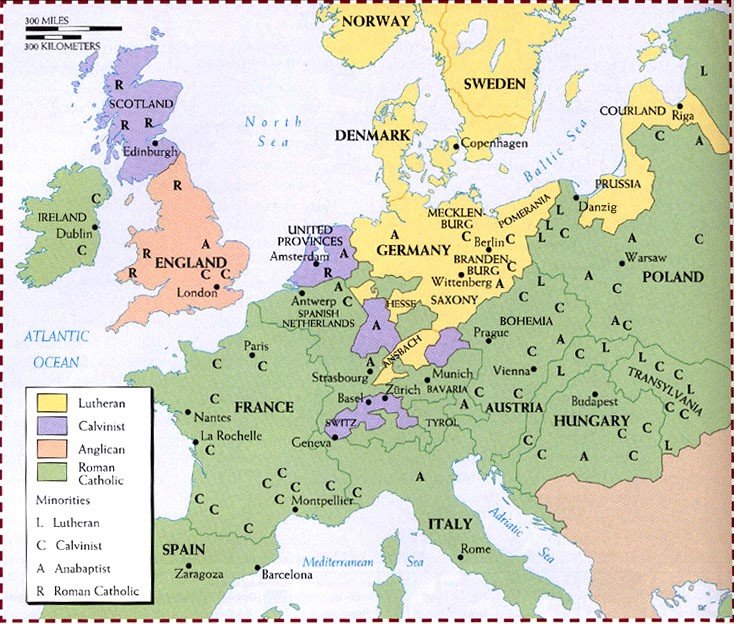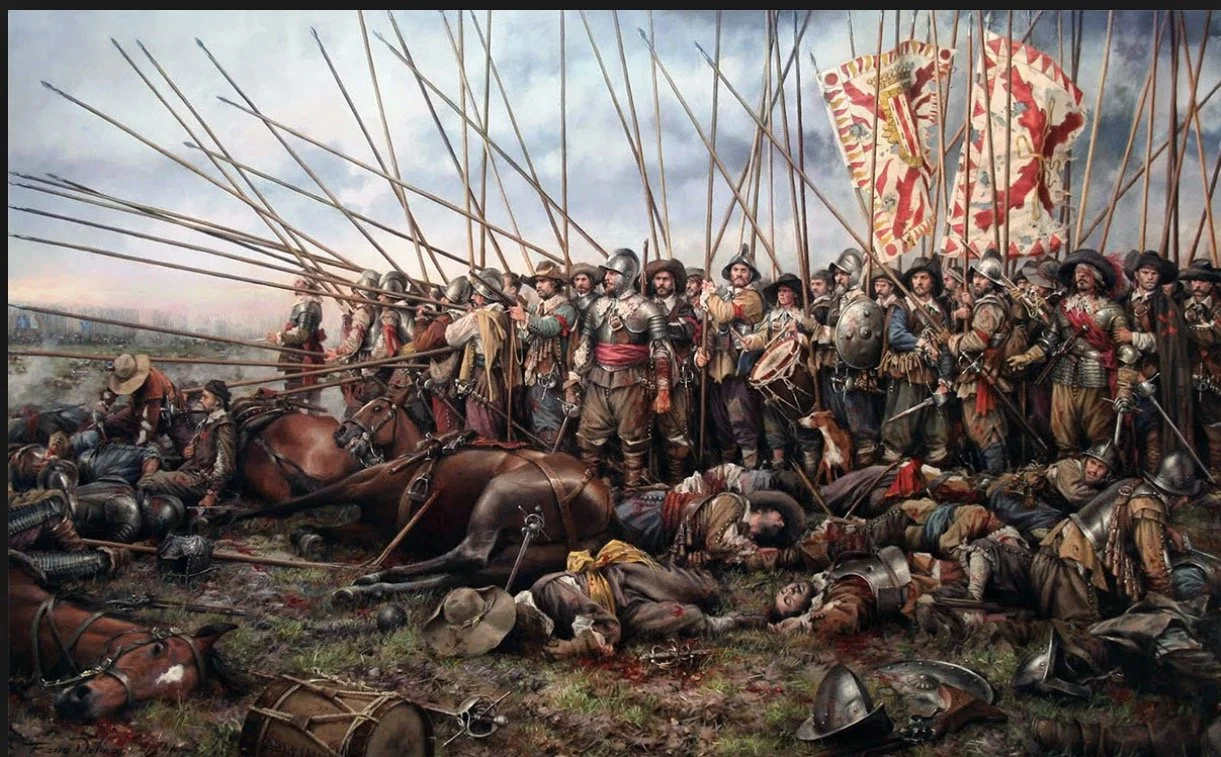To really understand this period in the English colonies, one has to understand what was happening back across the pond in England, which means one has to understand a little bit of history about England. Now at the time, most of the monarchies across western Europe were fairly autocratic, meaning whatever the king of queen said went, no ifs, ands, or buts. People in general viewed those in charge as being so because of the will of God, an idea those in charge were more than happy to support. However, this wasn’t really the case in England, where the king had to share power with Parliament, a voting group consisting of an upper house filled with nobles and a lower house filled with random asshats elected by anyone who owned a bit of land. The beginnings of Parliament go all the way back to 1215 and the signing of the Magna Carta after the nobles revolted against a real schmuck of a king named John, but that’s not really important right now.
What is important is that Parliament began to gain more power in England in the sixteenth century when King Henry VIII made up his own version of Christianity so he could divorce his wife and marry his side piece. Not only did this result in a whole slew of new religions sects popping up, who tended to squabble about everything except for their shared hatred of the once dominant Catholics, but it also brought up a few questions regarding the power of the monarchy. Namely, if the king can change how God is worshipped at will, is he really in power because of God? And if not, why the hell is he any different than any other random schmuck. Well, fast forwarding about a century, such questions began to result in actions.
In 1625, Charles I became king of England, Scotland, and Ireland. An old school type guy, he wanted to do whatever the fuck he wanted, which mostly involved ignoring Parliament, raising taxes, and marrying a Catholic, none of which sat well with a lot of people. Eventually, people got so pissed that Parliament launched a revolt in 1642, which resulted in a nine-year civil war where Charles I got his head cut off and the three kingdoms became a republic nominally under the control of Parliament, though in actuality a dictatorship under the rule of a Puritan named Oliver Cromwell. Good old Oliver ran things until 1658, when he died of a dick infection, after which is son Richard tried to rule, but he was such an asshat that Parliament invited Charles II, the son of the first Charles, to come back and be king instead in 1660.
Now just because Charles II came back, didn’t mean that he got to do whatever he wanted. As part of the agreement to restore the monarchy, he had to agree to share power with Parliament. However, this didn’t work as well as it could, mostly because while Parliament was full of hardcore Anglicans and Puritans who thought Catholics were just the worst, Charles II was pretty okay with them, to the point that his brother and heir, James, converted to Catholicism in 1668. Eventually the anti-Catholic hysteria in the country and Parliament got so bad that Charles II just said fuck it and dissolved Parliament permanently, doing whatever the hell he felt like until his death in 1685.
Following the death of his brother, the Catholic James became king. Wanting to be a good king, he reinstated Parliament, but soon found the general hatred of Catholics conflicted greatly with his personal belief that people should just worship however they damn well pleased. Eventually, James dissolved Parliament just like his brother, which made him so unpopular that Parliament invited a random Dutch guy named William to come on over and be king instead. Not only was William a Protestant, but he was also married to James’s Protestant daughter Mary, giving the pair at least somewhat of a claim to the throne. William and Mary though it would be pretty cool to be monarchs, so in 1688 they popped over with an army, which met little to no resistance because nobody in England really liked James all that much by that point. James went into exile and William and Mary were crowned co-rulers after a vote by Parliament. However, as part of the deal, the new rulers had to agree to an English bill of rights. This bill of rights included a requirement that Parliament exist, free elections, freedom of speech, the prohibition of cruel and unusual punishments, the right for Protestants to bear arms, and no taxation or laws passed without a vote by Parliament. Some of you might recognize these things as being rather pertinent to some upcoming parts of American history, but we’ll get to that when we get to it.

